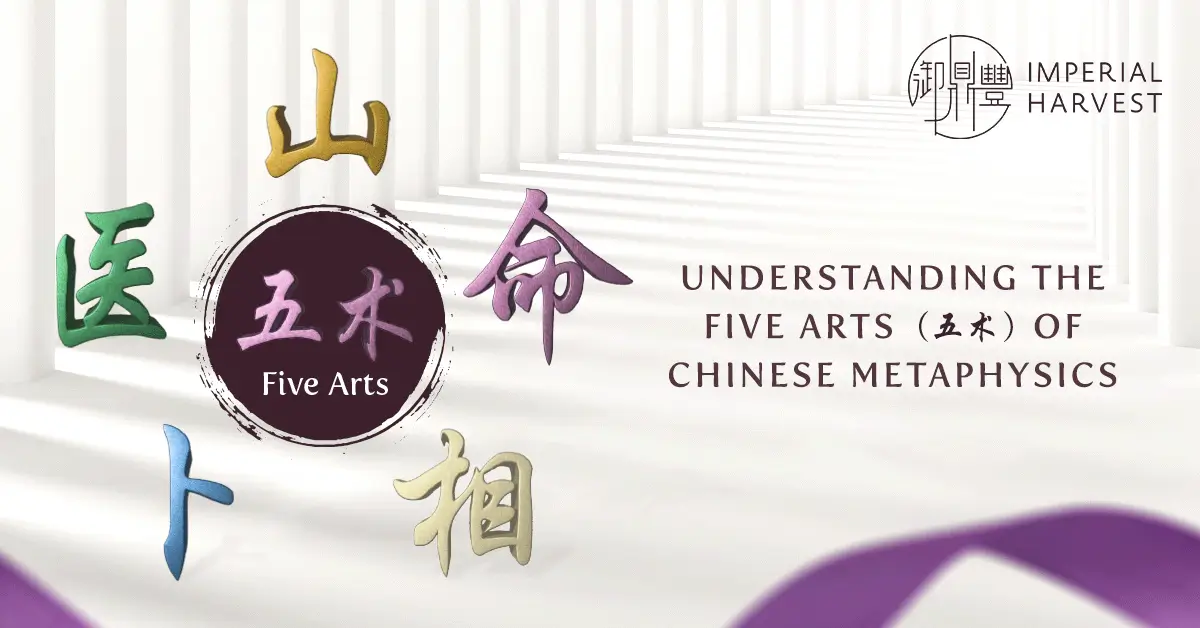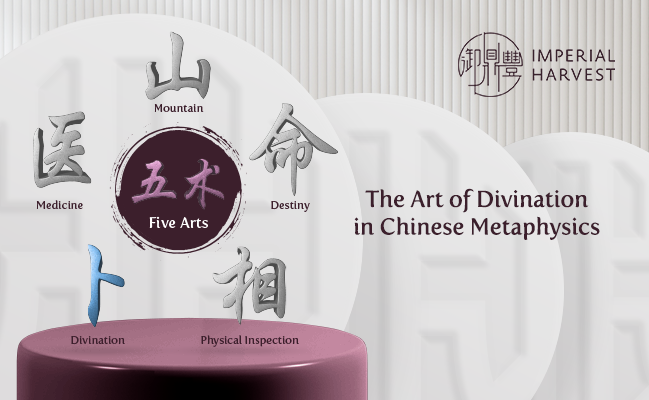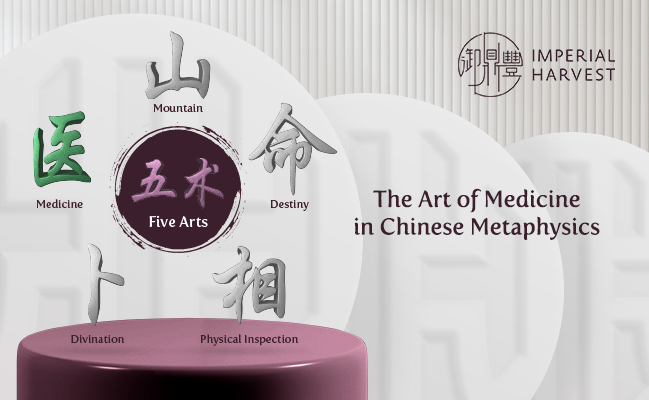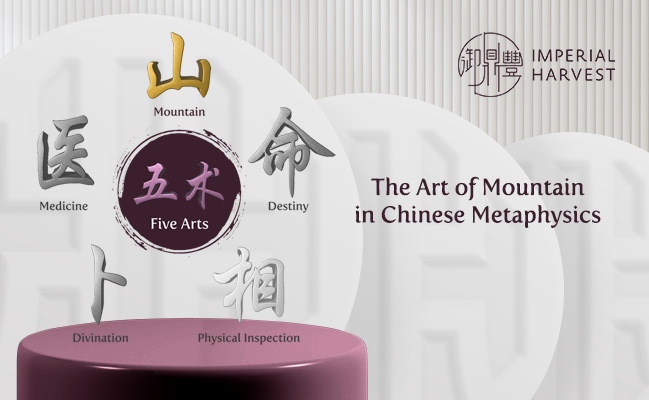Posted by Imperial Harvest on 08 March 2024
Estimated Reading Time: 3 mins
The Five Arts (五术) form the foundation of Chinese metaphysical philosophy. These arts are defined as Mountain (山), Medicine (医), Divination (卜), Physical Inspection (相), and Destiny (命), capture a well-rounded approach to understanding the secrets of self-improvement and harmonious living.
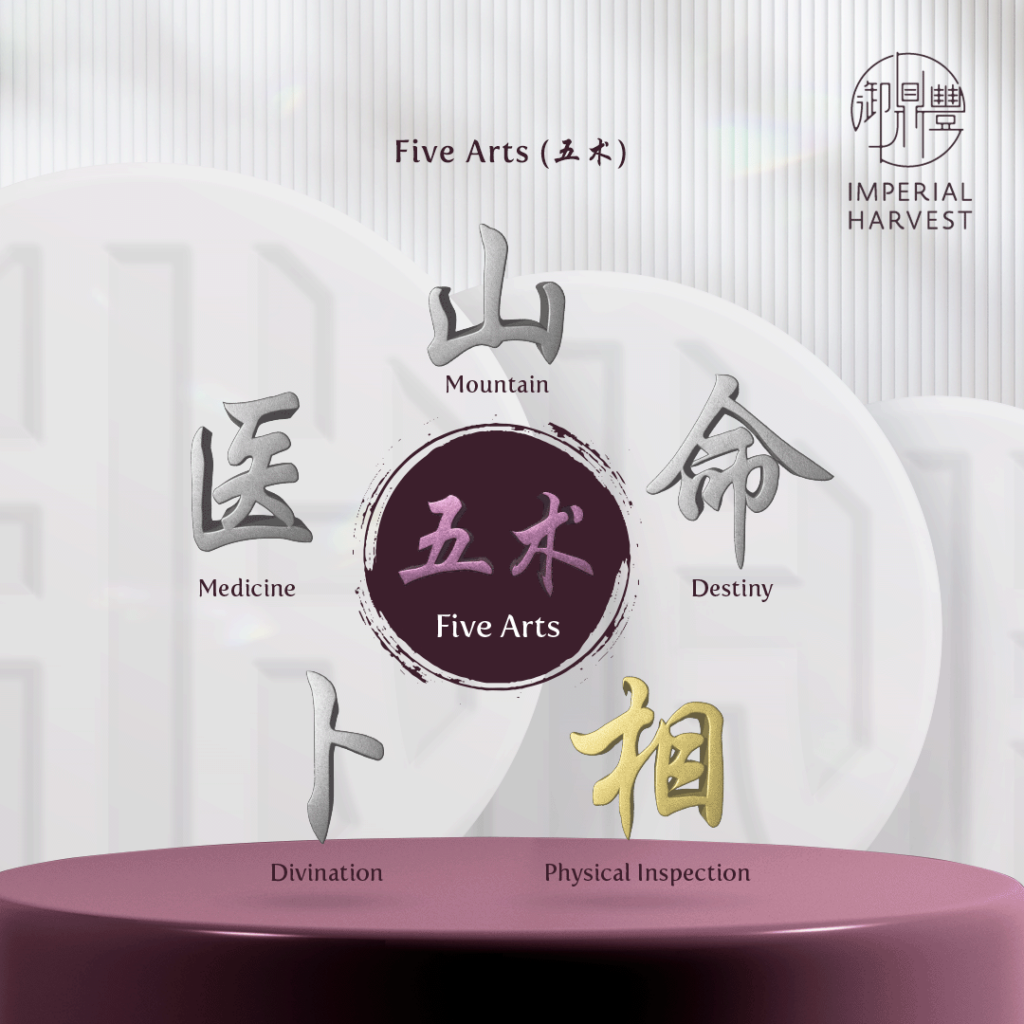
Key Disciplines in the Art of Physical Inspection
While the Art of Physical Inspection shares similarities with the Art of Divination, they differ in their applications. Whereas the Art of Divination focuses on guiding daily choices and paths, the Art of Physical Inspection guides an individual’s understanding of their inherent qualities and strengths.
This practice often involves the interpretation of the characteristics of shapes, objects, and appearances, and includes well-known methods such as Face Reading (面相) and Palmistry (手相). Employing these techniques may allow an individual to gain insights into a person’s character, potential, and fortunes.
In ancient China, the Art of Physical Inspection played a significant role in evaluating candidates for important government positions, emphasising traits like integrity and effectiveness in serving the emperor. The principles of Face Reading and Palmistry stem from the belief that an individual’s external appearance mirrors their internal qualities, akin to the adage that the eyes are windows to the soul.
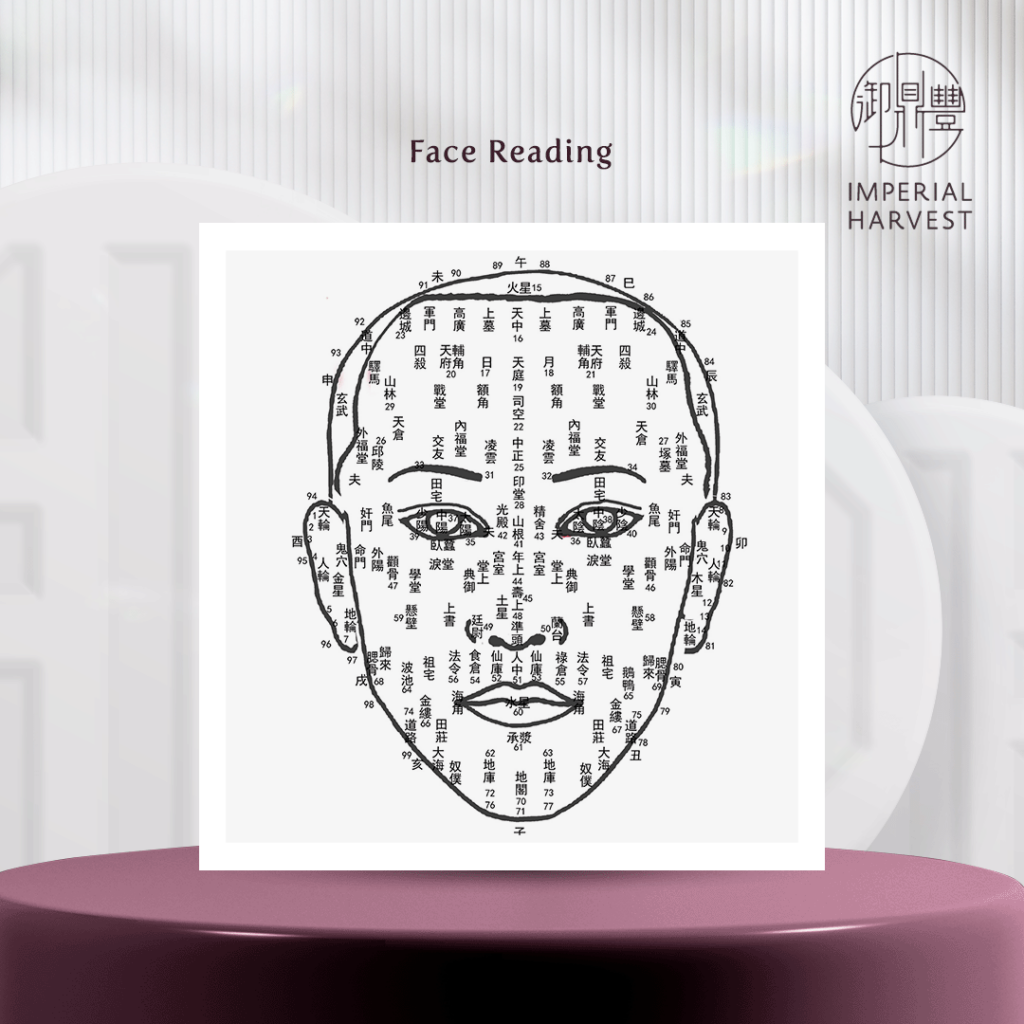
The practice of Face Reading was thought to be more reliable than a Bazi analysis, due to the historical inability to alter facial features when compared to hindrances caused by inaccuracies in birth details. The Art of Physical Inspection also includes the art of Feng Shui (风水), which studies natural and man-made environments to comprehend unseen energies that influence the characteristics and destinies of their inhabitants.
Origins of the Art of Physical Inspection
As a principle, the Art of Physical Inspection served as a tool for assessing potential government officials or students aspiring to enter government service. Experts would evaluate individuals’ traits through their facial features and palms, and even visit their ancestral homes, studying the natural layout of the land for a comprehensive assessment to determine their suitability for specific roles in administration.
The earliest known documentation surrounding the practices of Physical Inspection dates back to as early as the Shang dynasty (c. 1600 to 1046 BC), the first established ruling dynasty of China in recorded history. During the Zhou dynasty, Guan Zhong (管仲), a philosopher and chancellor to the Duke Huan of Qi, was known for his disposition toward the Art of Physical Inspection, reading individuals’ personalities through their appearance.
During the Han dynasty, the philosopher, politician, and author Dong Zhongshu (董仲舒) penned “Luxuriant Dew of the Spring and Autumn Annals” 《春秋繁露》. This text drew upon Chinese metaphysical concepts like the Five Elements and included teachings on Physical Inspection principles and their use in the selection of capable government officials.
The Tang dynasty (618 to 907 AD) represented the peak of the Art of Physical Inspection, especially in the practice of Feng Shui for selecting sites for capitals, palaces, and temples. During this time, the Feng Shui master, Yang Yun Song (杨筠松), authored seminal texts that later formed the basis of Imperial Feng Shui studies, influencing the Tang, Song, Yuan, Ming, and Qing dynasties.
The Song dynasty (960 to 1279 AD) saw the further development of Physical Inspection methods in dynastic China, with the implementation of the “Three Physiognomies” system that utilises facial features, body shape, and mannerisms to determine an individual’s character and potential.
Modern Applications of the Art of Physical Inspection
Today, the principles of the Art of Physical Inspection have found new applications in various modern contexts, reshaping how we perceive and interact with the world around us. In business interactions, understanding character traits through physical appearance proves invaluable, guiding decisions and relationships. Moreover, Feng Shui — once limited to tomb placement — has evolved into a holistic approach to creating balanced living and working spaces.
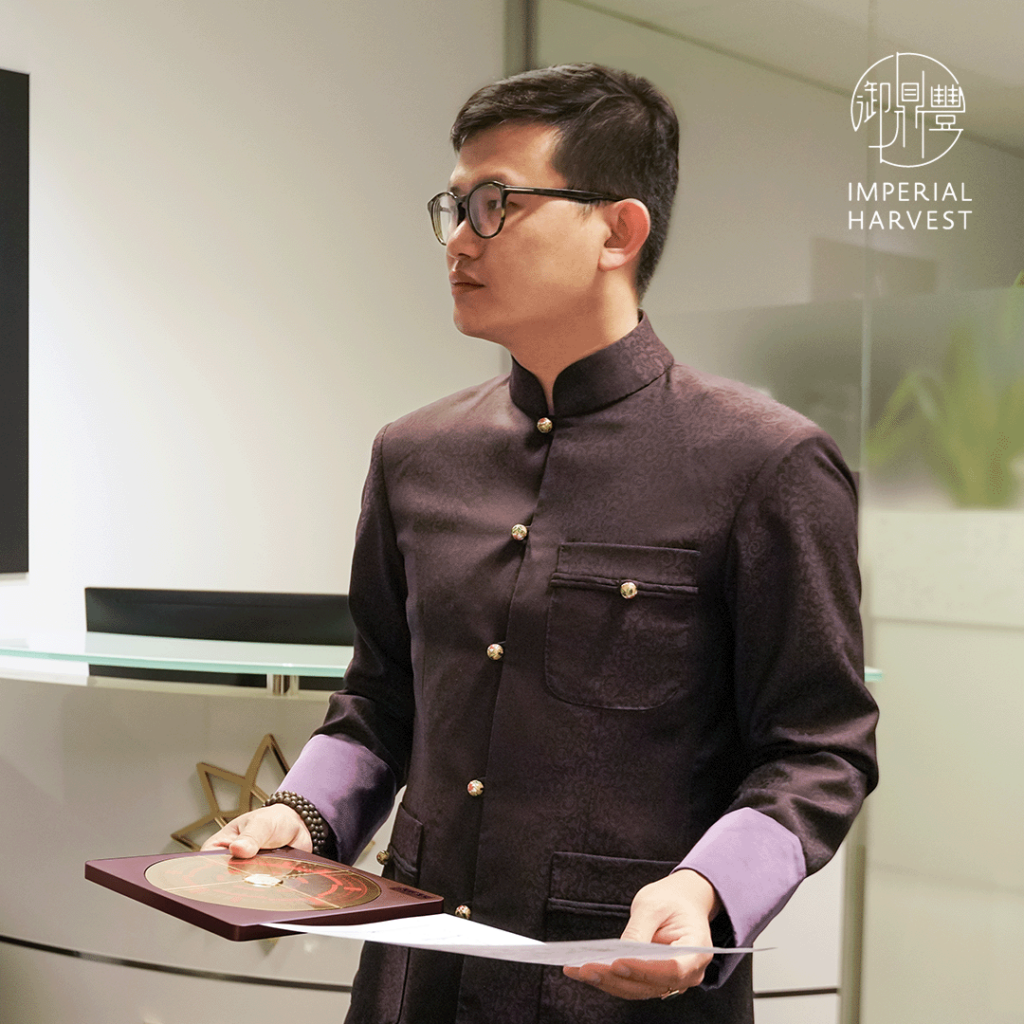
This evolution is evident in practices like San Yuan Feng Shui (三元风水), which emphasises the influence of time on occupants in a space, and San He Feng Shui (三合风水), the land’s elemental composition, focusing on its relationship with the water mouth, defined as the nearest water body to the property. These principles enhance personal and professional spaces, aligning them with positive energies and fortunes.
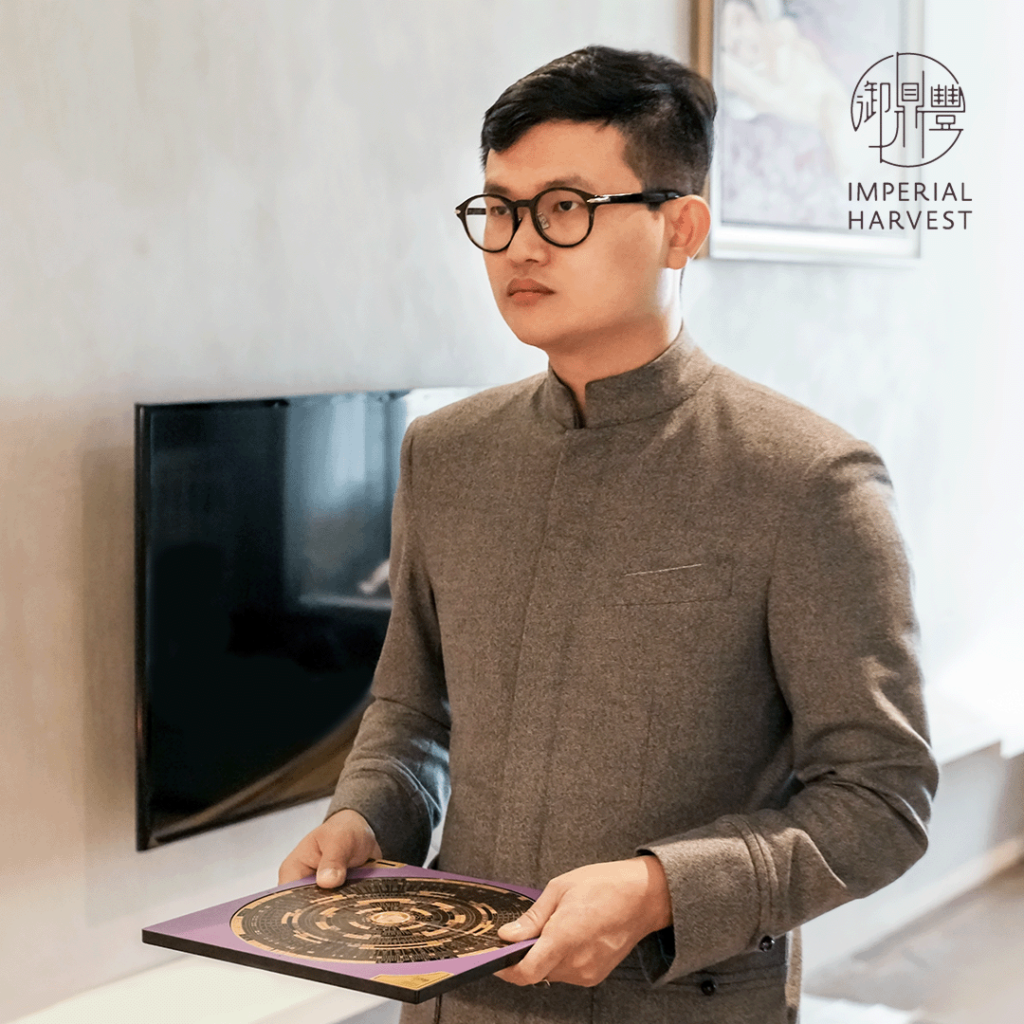
The principles of Physical Inspection remain relevant in our contemporary society, with modern practitioners adapting its techniques for use in various fields, including business, consultancy, and dating. For example, the utilisation of facial recognition technology in law enforcement, marketing, and technology can also be viewed as a contemporary application of the Art of Physical Inspection, highlighting the enduring significance and adaptability of these ancient practices in the modern world.
The Art of Physical Inspection acts as a vital link between ancient wisdom and contemporary practices, offering a unique perspective that allows us to comprehend the intricate connection between our physical attributes, character traits, and destinies.
Imperial Harvest’s expert consultants are always on hand to guide you on your journey and provide you with insights to help you realise your fullest potential. Book a complimentary consultation today or contact us at +65 92301640.
We are located at
For prospective clients:Imperial Harvest402 Orchard Road
Delfi Orchard #02-07/08
Singapore 238876 For existing clients:Imperial Harvest Prestige
402 Orchard Road
Delfi Orchard #03-24/25
Singapore 238876
Most Read Articles
Get to read our life changing articles and get inspired.
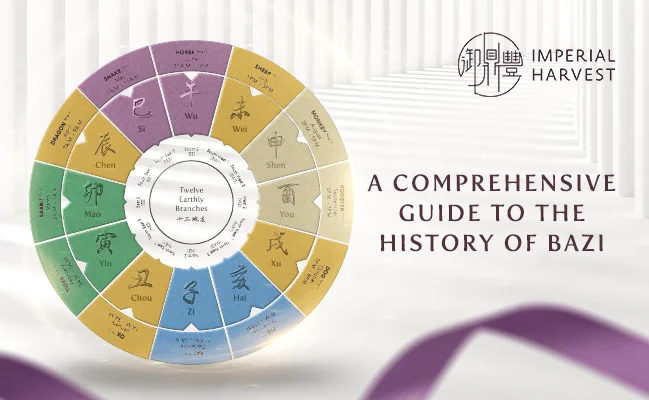
A Comprehensive Guide to the History of Bazi (八字)
Estimated Reading Time: 5 mins Bazi (八字) is often mistakenly assumed as the Chinese counterpart of western Astrology. The similarities between both systems lie in their utilisation of birth dates and time in their calculations, and the ability to be read from a tabulated chart. Where Astrology may take into account the positions of different […]
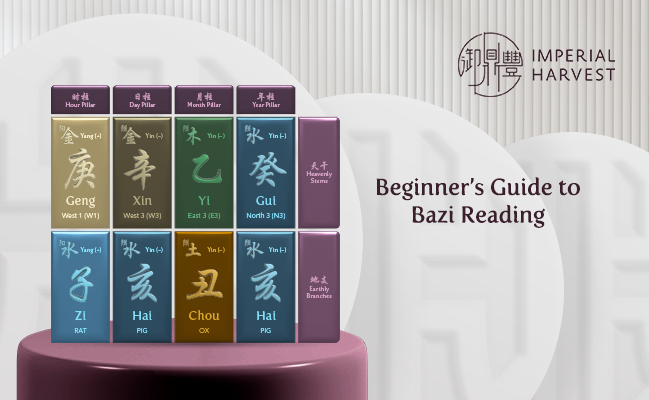
Beginner’s Guide to Bazi Reading
Estimated Reading Time: 5 mins Bazi (八字), or the Four Pillars of Destiny, is a multidisciplinary study in Imperial Feng Shui. It encompasses a well-developed set of metaphysical principles based on planetary influences, the duality of Yin and Yang, and the Five Elements. What is a Bazi Reading? Bazi is an intricate discipline within Imperial […]
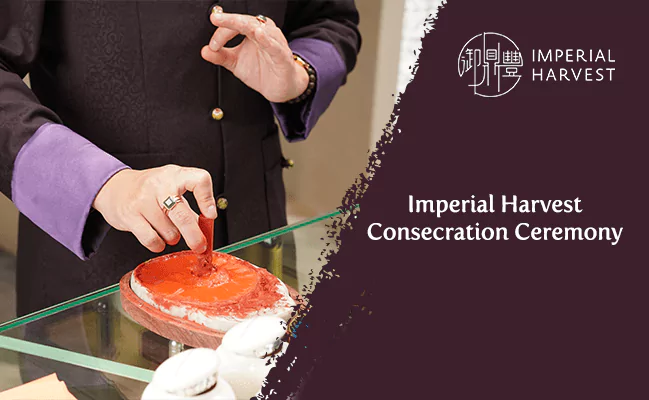
Imperial Harvest Consecration Ceremony
Estimated Reading Time: 5 mins At Imperial Harvest, each earthly treasure undergoes a series of consecration rites performed by Master David, before it is bestowed upon its blessed owner. Every aspect of these sacred Chinese anointing rituals is carefully examined and accurately represented in Master David’s blessings, reflecting Imperial Harvest’s deep respect for these esteemed […]
